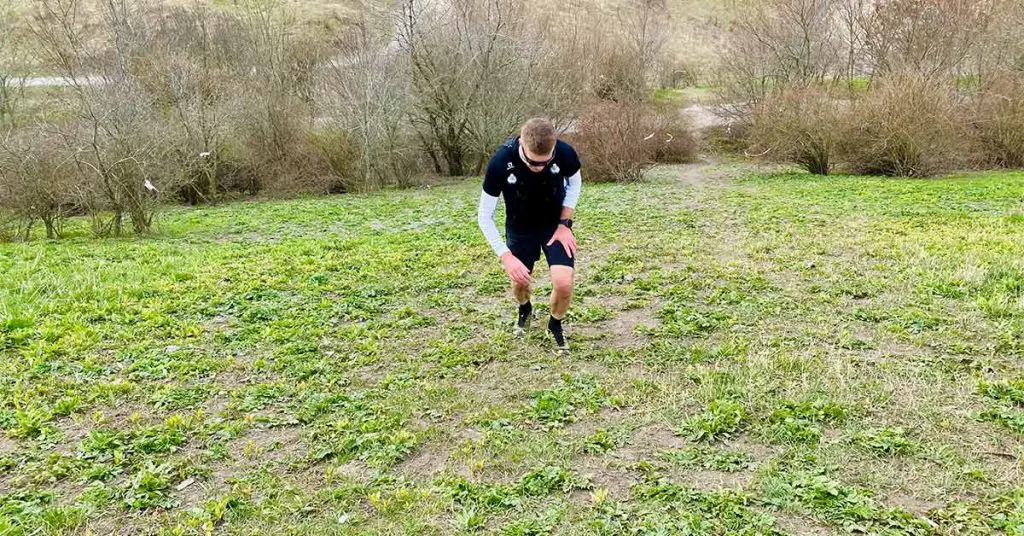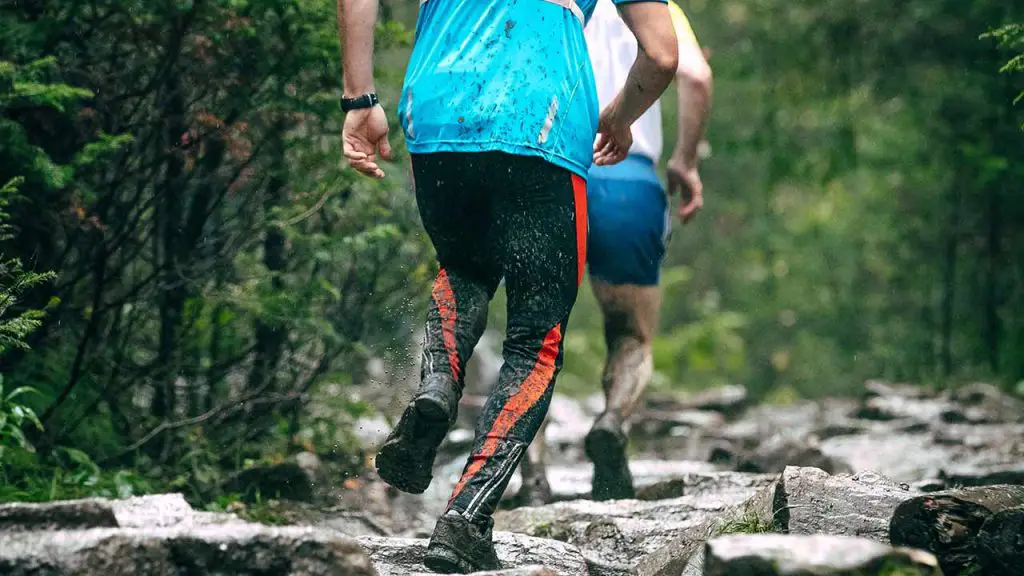Estimated read time: 3 minutes.
If you’re a hiker, you may be wondering if you can use your hiking shoes for trail running. The answer is yes – but there are some things to keep in mind. This blog post will discuss the pros and cons of using hiking shoes for trail running.
Trail Running Shoes vs Hiking Shoes
There are several key differences between trail running shoes and hiking shoes. Trail running shoes are typically lighter and have more flexible soles than hiking shoes. On the other hand, hiking shoes are heavier and have stiffer soles that can provide more support when carrying a heavy load.
Hiking shoes are designed for hikers who need good ankle support and stability on uneven terrain. They’re also heavier than running shoes, which can be a disadvantage for running. If you run shorter distances, your hiking shoes can work for trail running. They will have a lug pattern that can provide grip on different types of terrain and cushioning to help absorb shock from the trails.
But the main problem with using hiking shoes for trail running is that they can be too stiff and heavy, leading to injuries. You become too clumsy and can’t move as fast or effectively on the trails.
On the other hand, trail running shoes are designed specifically for running. They have a more flexible midsole to help you move quickly and easily over varied terrain, and they also have lugs that provide grip in all directions and sticky rubber that helps you stick to the trail. In addition, trail running shoes typically weigh less than hiking shoes, which can be a big plus if you’re looking to cover more ground. Even if the soles are softer, they will typically have a rock plate protecting against more rugged and rocky terrain.
The Durability of Hiking Shoes vs Trail Running Shoes
Durability is another factor to consider when deciding between hiking and trail running shoes. Hiking shoes are often more durable because they are meant for harsher conditions; however, this can also depend on the type of hiking shoe you purchase. Hiking shoes often have a waterproof membrane and are great for wet, muddy conditions. If you treat your hiking shoes with care, they can last for a long time; up to 1000 miles can be put on a good pair of hiking shoes.
Trail running shoes usually have a less durable upper due to their lightweight construction, but they make up for it with a more durable outsole. Most trail running shoes can withstand around 400-500 miles before they need to be replaced. It also depends on the surface you are running on and how often you rotate your shoes.
Breaking In Hiking Shoes vs Trail Running Shoes
Hiking Shoes require a longer break-in time because they are designed to be stiff and supportive. It could take between 1-4 weeks for your hiking boots to break in, and you may experience some blisters during that time. The material is thicker and can take time to conform to the shape of your feet.
On the other hand, trail running shoes are flexible right out of the box. You can start using them as soon as you get them without worrying about breaking them in. They are also less likely to cause blisters.
The Final Verdict
In conclusion, can you trail run with hiking shoes? Yes, but it’s not ideal. Trail running shoes are designed specifically for trail running and are a better option if you’re looking to cover more ground quickly and easily. They are also more flexible and have lugs that provide grip in all directions and sticky rubber that can grip even the most slippery surfaces. In addition, they typically weigh less than hiking shoes. Hiking shoes are more durable than trail running shoes but require a longer break-in time. They can be great for wet, muddy conditions and last up to 1000 miles. It all comes down to personal preference and your running needs.
- How Many Laps Around a Track is a 5K: Your Guide - October 22, 2023
- When is Track and Field Season? - October 22, 2023
- Understanding the Length: How Long Is a Running Track? - October 22, 2023



